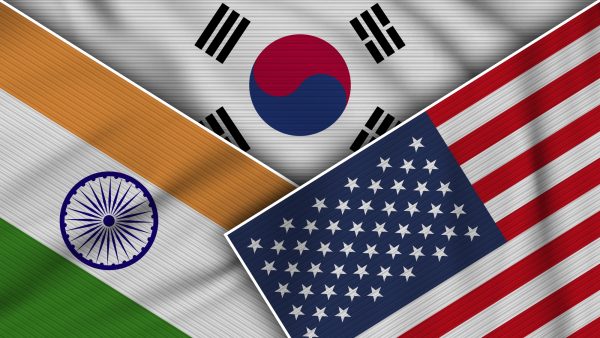

The trilateral partnership between India, South Korea, and the United States is gaining momentum, focusing on military cooperation, green energy, maritime security, and strategic technology collaboration. This partnership is particularly significant in the context of rising geopolitical tensions in the Indo-Pacific region. The U.S.-India Initiative on Critical and Emerging Technology (iCET), launched in January 2023, aims to enhance collaboration in technology sectors critical to national security and economic resilience [8e695b11].
In December 2023, the U.S.-South Korea Next Generation Critical and Emerging Technology Dialogue took place, further solidifying the technological ties among the three nations. This dialogue culminated in the inaugural trilateral technology meeting held in Seoul in March 2024, where discussions centered on economic security, supply chain resiliency, and the development of emerging technologies [8e695b11].
The recent agreement signed by defense ministers from South Korea, the United States, and Japan to formalize trilateral security cooperation also complements the India-South Korea-U.S. triad. This memorandum of cooperation emphasizes the need for enhanced military coordination in response to threats from North Korea and the growing influence of China in the region. South Korean Defence Minister Shin Won-sik highlighted the importance of this framework, which includes senior-level policy consultations and trilateral exercises aimed at maintaining peace and stability in the Indo-Pacific [a3a17192].
Despite the positive developments, the trilateral security cooperation faces challenges, particularly concerning the differing priorities of the involved nations. Critics argue that an overemphasis on military collaboration could antagonize China and Russia, potentially undermining South Korea's national interests. Additionally, South Korea's recent withdrawal of opposition against Japan's move to register the historic Sado gold mine as a UNESCO World Heritage site has sparked controversy, with critics accusing Japan of failing to acknowledge its historical injustices [a3a17192].
Overall, the India-South Korea-U.S. trilateral partnership is positioned to play a crucial role in addressing regional challenges and enhancing security cooperation in the Indo-Pacific, while also navigating the complexities of international relations and historical grievances [8e695b11].